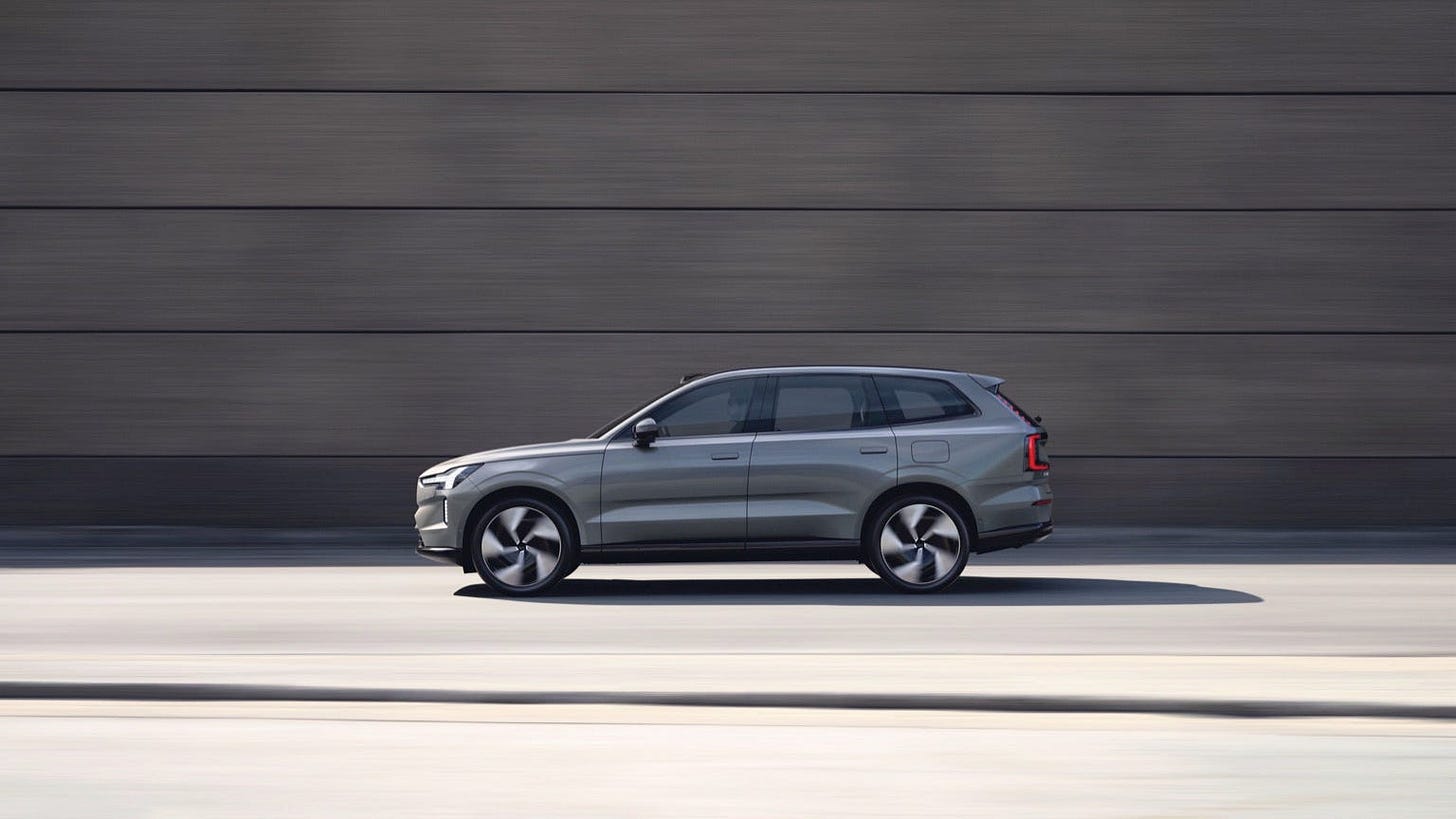Volvo Is Making EVs Way Better
But not in the way you might think.

EVs are undeniably a huge step forward compared to the planet-wrecking, gas-guzzling vehicles we have used for well over a century. They are more efficient, quieter, smother, don’t pollute the local environment and offer more performance for the money. What’s more, many EVs on the market have such long ranges and such short charge times that they have the same usability as combustion vehicles. But EVs aren’t perfect. The batteries at their core are potentially a huge issue. They require materials that could possibly be linked to child slavery. The mining of these materials has at times cause massive ecological damage, such as habitat loss and water table contamination with toxic heavy metals. Even the manufacturer of these batteries is potentially problematic, as they require vast amounts of energy and, therefore, could have a huge carbon footprint (though, even in the worse case scenario, EVs have lower lifetime emissions than combustion cars). But, luckily Volvo is implementing a genius blockchain-based solution that will make the ethics and precedent of EVs crystal clear.
This solution is something called a battery passport, and Volvo’s EX90 electric SUV, set to hit the market later this year, will be the first EV in the world to have one. Volvo jointly developed their battery passport with UK company Circulor over the past five years. The idea is to make every aspect of the battery traceable by using blockchain technology. The same technology that powers cryptocurrency. But, rather than updating a ledger on who owns what coins, this updates a ledger that details every aspect of the battery. The owner of an EX90 can simply scan a QR code in the driver’s door to access this ledger, or battery passport, which will detail where all the raw materials were sourced from, who built the cells and when, who and when the pack was assembled, as well as what the cells carbon footprint is. Volvo even updates the ledger with battery health information during the lifetime of the car, enabling future buyers of the car to better asses the condition of the battery, which is especially important as mileage is a terrible indicator of the health of a battery pack.
It makes sense to use blockchain technology here. You can’t delete or alter the ledger once it is created, as such, Volvo’s blockchain battery passport is a reliable, easy-access documentation that gives customers and regulators clarity.
It also makes sense for Volvo to launch this with the EX90. This giant 7-seater electric SUV has some equally massive specs. For the shocking steep price of £96,255, you get an incredibly luxurious interior, 402 horsepower, 568 lb-ft of torque, 0–60 mph in only 5.9 seconds and a massive towing capacity of 2,200 kg. But, more importantly, it comes with a vast 111 kWh battery pack, capable of charging 250 kW, giving it a 10% to 80% charge time of 32 minutes, and a WLTP range of 364 miles. The environmental and ethical issues of raw material sourcing are amplified by having such a huge battery pack. What’s more, the pack’s nominal voltage is only 400V, this combined with the sizeable torque of the motors and lightning-quick charge rates, could lead to rapid battery degradation, making assessing battery health even more important.
The EX90 isn’t going to be the only EV with this feature. Volvo will roll it out across its entire electrified range over the coming years. Moreover, battery passports will become mandatory for any EV sold in the EU from February 2027. So, any manufacturer who wants to sell this side of the Atlantic will either have to come up with this own solution here or adopt Volvo/Circulor’s blockchain technology. Volvo is just the first to pioneer the technology to enable battery passports and deploy it commercially.
Thanks for reading! Content like this doesn’t happen without your support. So, if you want to see more like this, don’t forget to Subscribe and follow me on BlueSky or X and help get the word out by hitting the share button below.
Sources: Reuters, WSJ, Circulor, EV Database

